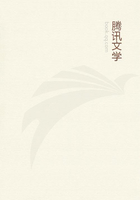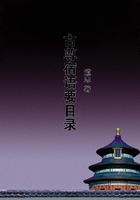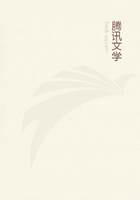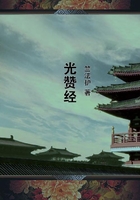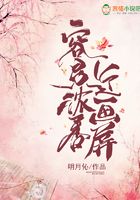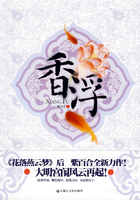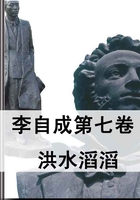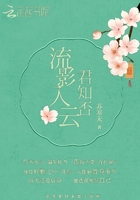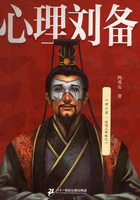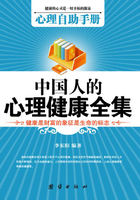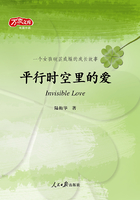"You then," a man may say, "are you free?" I wish, by the Gods, and pray to be free; but I am not yet able to face my masters, I still value my poor body, I value greatly the preservation of it entire, though I do not possess it entire. But I can point out to you a free man, that you may no longer seek an example. Diogenes was free. How was he free?- not because he was born of free parents, but because he was himself free, because he had cast off all the handles of slavery, and it was not possible for any man to approach him, nor had any man the means of laying hold of him to enslave him. He had everything easily loosed, everything only hanging to him. If you laid hold of his property, he would rather have let it go and be yours than he would have followed you for it: if you had laid hold of his leg, he would have let go his leg; if of all his body, all his poor body; his intimates, friends, country, just the same. For he knew from whence he had them, and from whom, and on what conditions. His true parents indeed, the Gods, and his real country he would never have deserted, nor would he have yielded to any man in obedience to them or to their orders, nor would any man have died for his country more readily. For he was not used to inquire when he should be considered to have done anything on behalf of the whole of things, but he remembered that everything which is done comes from thence and is done on behalf of that country and is commanded by him who administers it. Therefore see what Diogenes himself says and writes:
"For this reason," he says, "Diogenes, it is in your power to speak both with the King of the Persians and with Archidamus the king of the Lacedaemonians, as you please." Was it because he was born of free parents? I suppose all the Athenians and all the Lacedaemonians, because they were born of slaves, could not talk with them as they wished, but feared and paid court to them. Why then does he say that it is in his power? "Because I do not consider the poor body to be my own, because I want nothing, because law is everything to me, and nothing else is." These were the things which permitted him to be free.
And that you may not think that I show you the example of a man who is a solitary person, who has neither wife nor children, nor country, nor friends nor kinsmen, by whom he could be bent and drawn in various directions, take Socrates and observe that he had a wife and children, but he did not consider them as his own; that he had a country, so long as it was fit to have one, and in such a manner as was fit; friends and kinsmen also, but he held all in subjection to law and to the obedience due to it. For this reason he was the first to go out as a soldier, when it was necessary; and in war he exposed himself to danger most unsparingly, and when he was sent by the tyrants to seize Leon, he did not even deliberate about the matter, because he thought that it was a base action, and he knew that he must die, if it so happened. And what difference did that make to him? for he intended to preserve something else, not his poor flesh, but his fidelity, his honourable character. These are things which could not be assailed nor brought into subjection. Then, when he was obliged to speak in defense of his life, did he behave like a man who had children, who had a wife? No, but he behaved like a man who has neither. And what did he do when he was to drink the poison, and when he had the power of escaping from prison, and when Crito said to him, "Escape for the sake of your children," what did Socrates say? Did he consider the power of escape as an unexpected gain? By no means: he considered what was fit and proper; but the rest he did not even look at or take into the reckoning. For he did not choose, he said, to save his poor body, but to save that which is increased and saved by doing what is just, and is impaired and destroyed by doing what is unjust. Socrates will not save his life by a base act; he who would not put the Athenians to the vote when they clamoured that he should do so, he who refused to obey the tyrants, he who discoursed in such a manner about virtue and right behavior. It is not possible to save such a man's life by base acts, but he is saved by dying, not by running away.
For the good actor also preserves his character by stopping when he ought to stop, better than when he goes on acting beyond the proper time.
What then shall the children of Socrates do? "If," said Socrates, "I had gone off to Thessaly, would you have taken care of them; and if I depart to the world below, will there be no man to take care of them?" See how he gives to death a gentle name and mocks it. But if you and I had been in his place, we should have immediately answered as philosophers that those who act unjustly must be repaid in the same way, and we should have added, "I shall be useful to many, if my life is saved, and if I die, I shall be useful to no man." For, if it had been necessary, we should have made our escape by slipping through a small hole. And how in that case should we have been useful to any man? for where would they have been then staying? or if we were useful to men while we were alive, should we not have been much more useful to them by dying when we ought to die, and as we ought? And now, Socrates being dead, no less useful to men, and even more useful, is the remembrance of that which he did or said when he was alive.
Think of these things, these opinions, these words: look to these examples, if you would be free, if you desire the thing according to its worth.
And what is the wonder if you buy so great a thing at the price of things so many and so great? For the sake of this which is called "liberty," some hang themselves, others throw themselves down precipices, and sometimes even whole cities have perished: and will you not for the sake of the true and unassailable and secure liberty give back to God when He demands them the things which He has given? Will you not, as Plato says, study not to die only, but also to endure torture, and exile, and scourging, and, in a word, to give up all which is not your own? If you will not, you will be a slave among slaves, even you be ten thousand times a consul; and if you make your way up to the Palace, you will no less be a slave; and you will feel, that perhaps philosophers utter words which are contrary to common opinion, as Cleanthes also said, but not words contrary to reason. For you will know by experience that the words are true, and that there is no profit from the things which are valued and eagerly sought to those who have obtained them; and to those who have not yet obtained them there is an imagination that when these things are come, all that is good will come with them; then, when they are come, the feverish feeling is the same, the tossing to and fro is the same, the satiety, the desire of things which are not present; for freedom is acquired not by the full possession of the things which are desired, but by removing the desire. And that you may know that this is true, as you have laboured for those things, so transfer your labour to these; be vigilant for the purpose of acquiring an opinion which will make you free; pay court to a philosopher instead of to a rich old man: be seen about a philosopher's doors: you will not disgrace yourself by being seen; you will not go away empty nor without profit, if you go to the philosopher as you ought, and if not, try at least: the trial is not disgraceful.

